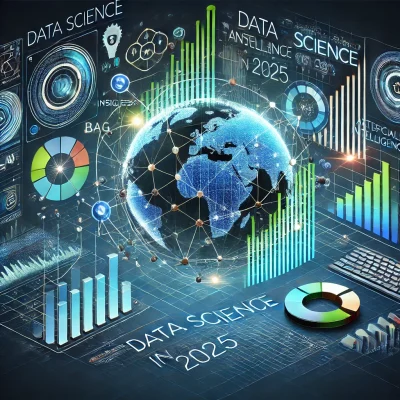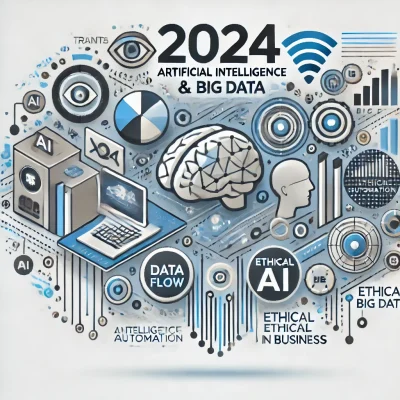Driving Innovation and Better Patient Outcomes with Data and AI
The healthcare industry is increasingly relying on data-driven insights and AI technologies to improve patient outcomes, optimize operational efficiency, and drive innovation. At Datagifta, our healthcare analytics solutions leverage advanced data analysis, machine learning, and AI to help healthcare organizations unlock the power of their data, making smarter, faster decisions that enhance both patient care and business performance.
What is Healthcare Analytics?
Healthcare analytics involves the systematic use of data, statistical analysis, and AI algorithms to gain actionable insights across all levels of healthcare operations. From clinical analytics that improve patient care to operational analytics that streamline workflows and reduce costs, healthcare analytics provides the foundation for informed decision-making in the healthcare sector.
By integrating data from various sources—such as electronic health records (EHRs), patient management systems, and even wearable devices—healthcare analytics offers a comprehensive view that can be used to predict trends, identify risks, and optimize healthcare delivery.
How AI and Data Analytics are Transforming Healthcare
- Clinical Data Analytics for Better Patient Care
Healthcare organizations can analyze clinical data to identify patterns that lead to more accurate diagnoses, personalized treatment plans, and preventive care strategies. AI-driven clinical analytics help healthcare providers make data-informed decisions that improve patient outcomes while minimizing risks. - Operational Efficiency through Predictive Analytics
By analyzing operational data, healthcare facilities can predict patient inflow, optimize staff allocation, manage inventory, and enhance resource utilization. Predictive analytics enables hospitals and clinics to run more efficiently, ultimately reducing costs and improving the quality of care provided. - Population Health Management
Healthcare analytics is instrumental in managing the health of large populations. By tracking key health indicators and monitoring trends, public health organizations can implement targeted interventions that address specific health challenges within communities. Predictive models also allow for early detection of outbreaks and chronic conditions at a population level. - Patient Experience Enhancement
By leveraging data analytics, healthcare organizations can gain insights into patient behavior, preferences, and satisfaction levels. These insights can be used to improve patient engagement, personalize communication, and enhance overall patient experience, leading to better adherence to treatment plans and improved outcomes. - Risk Management and Compliance
With the growing complexity of healthcare regulations, data-driven approaches are critical for maintaining compliance. Healthcare analytics helps organizations track compliance metrics, identify potential risks, and take corrective actions in real-time. AI also plays a role in automating reporting and auditing processes, reducing the administrative burden.
Key Areas of Healthcare Analytics
- Clinical Analytics
From patient data analysis to decision support systems, clinical analytics applies AI to interpret medical data and enhance clinical decisions. This includes diagnostics, treatment planning, and outcome tracking, all tailored to the individual patient. - Operational Analytics
Improve hospital and clinic operations by using data to forecast patient volumes, manage staffing levels, and optimize supply chain logistics. Operational analytics ensures that resources are used efficiently and that patients receive timely, quality care. - Financial Analytics
Optimize financial performance with data insights into billing, revenue cycles, cost management, and financial forecasting. Financial analytics enables healthcare organizations to reduce costs while maintaining the highest standard of care. - Patient Experience and Engagement Analytics
Personalize interactions and improve care delivery by understanding patient preferences and behavior. Patient engagement analytics helps create more tailored treatment plans and communication strategies that resonate with patients.
Benefits of Healthcare Analytics
- Improved Patient Outcomes
Healthcare analytics enables early detection of diseases, personalized treatment plans, and continuous monitoring, all contributing to better health outcomes. - Data-Driven Decision Making
AI-driven insights empower healthcare providers with the information they need to make faster, more informed decisions at every level of care delivery. - Operational Excellence
With predictive analytics, healthcare facilities can optimize operations, reducing inefficiencies, improving patient flow, and ensuring that resources are always where they are needed most. - Enhanced Patient Satisfaction
By leveraging data to understand and respond to patient needs, healthcare providers can enhance the overall patient experience, leading to higher satisfaction and better treatment adherence. - Compliance and Risk Mitigation
Healthcare analytics helps organizations stay compliant with ever-evolving regulations by providing real-time monitoring, reporting, and risk assessment tools.
Datagifta’s Approach to Healthcare Analytics
At Datagifta, we provide end-to-end healthcare analytics solutions tailored to the unique needs of healthcare providers, insurers, and public health organizations. Our approach includes:
- Data Integration and Management: We consolidate data from multiple sources, ensuring that it is clean, organized, and ready for analysis.
- Custom Analytics Solutions: Our AI-driven platforms are designed to address specific healthcare challenges, from patient management to operational efficiency.
- Advanced Predictive Modeling: We use machine learning and predictive analytics to forecast trends, identify risks, and guide decision-making.
- Real-Time Reporting and Dashboards: Our interactive dashboards provide real-time insights that are easy to interpret and actionable.
- Scalability and Security: Our solutions are designed to scale with your organization while ensuring full compliance with data privacy and security regulations.
The Future of Healthcare is Data-Driven
As healthcare continues to evolve, the role of data and AI in driving innovation and improving patient care will only grow. At Datagifta, we are at the forefront of this transformation, providing healthcare organizations with the tools they need to thrive in a data-driven world.
Explore how our healthcare analytics solutions can transform your organization and elevate the standard of care you provide. Contact us today to learn more.






